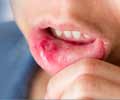Q: Which doctors treat halitosis?
A: Halitosis is usually treated by a dentist or an ENT specialist. If you suffer from any underlying disease, you may be referred to another specialist.
Q: Why do we often wake up with bad breath?
A: During the night, the flow of saliva in the mouth is less. This allows bacteria to act continuously in the mouth without being washed off. The plaque is also most alkaline in the morning, which favors the formation of malodors. The bad breath usually disappears with brushing of teeth or eating and does not amount to halitosis.
Q: How do I find out if I have bad breath?
A: It is not possible to know if you have halitosis. Sometimes you may find people moving away from you when you speak and this may be due to bad breath. The best way to find out is to ask your partner or a close friend or a family member for their opinion.
One simple way may be to lick your wrist, starting at the back of the tongue and moving towards its tip and leaving the saliva to dry for 10 seconds and smelling the area for any unpleasant odors.
Q: What types of food can cause bad breath?
A: Foods such as onions, garlic, alcohol, pizza and sometimes spicy foods can cause bad breath. Some tablets can also cause bad breath. Avoid food that can get stuck in the teeth and leave residue like cheese, meat and sweets. Chewing parsley after meals can help as it is a natural mouthwash.
Q: Where does the smell associated with halitosis originate?
A: The offensive odors of halitosis is due to volatile sulphur compounds including hydrogen sulphide, methyl mercaptan and dimethyl sulphide.
Hydrogen sulphide is produced mainly from the top surface of the tongue and methyl mercaptan and dimethyl sulphide usually from the gums. Methyl mercaptan smell like rotten cabbage.






